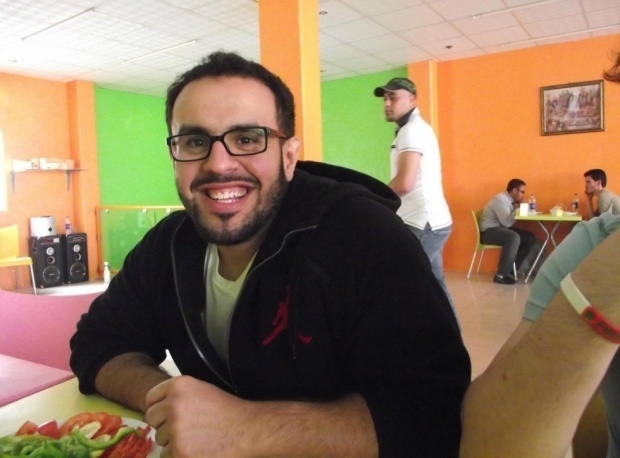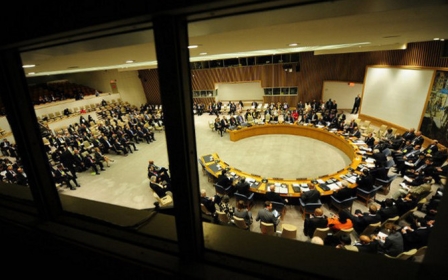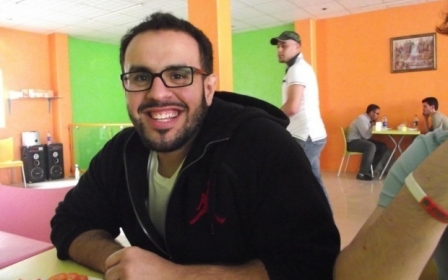Former prisoner: World must not forget thousands in Egyptian jails

LONDON - One of Egypt’s highest profile former political prisoners is calling on Western governments and activists to pressure Egyptian authorities to release 40,000 political prisoners estimated to be held in the country's jails across Egypt.
Mohamed Soltan, 27, an American citizen of Egyptian origin, came to the world's attention last year when he made a video appeal to Barack Obama from his prison cell - a copy of which was obtained and published by Middle East Eye - urging the US president to help secure his release.
Arrested without charge in August 2013, Soltan was thrown into an “underground dungeon” where he was tortured, beaten and kept in solitary confinement. Guards subjected him to sleep deprivation and incited him to commit suicide.
Eventually, he resorted to a hunger strike in protest of his treatment that lasted a staggering 490 days and put him into a coma.
After Obama's eventual intervention and a heavy bout of campaigning by his family, friends and activists around the world, Soltan was released this May.
Having built up his strength, Soltan is now travelling around Europe to talk about his experiences in an Egyptian prison cell and urge activists and governments to do more to pressure authorities to release more political prisoners like him who were arrested in the crackdown following the overthrow of president Mohamed Morsi.
He is also calling for an end to the mass death sentences, 500 of which have been passed this year alone, including one against Soltan's father, Salah Soltan, for his membership with the Muslim Brotherhood.
Haunted by the memory of a massacre
Soltan was one of hundreds of people who were rounded up and arrested during the army’s crackdown on protesters in Cairo’s Rabaa al-Adawiya Square on 14 August 2013 in what has come to be known as one of the largest massacres in Egypt’s modern history. It's estimated that around 1,000 people were killed in one day.
Soltan told a crowd at Imperial College on Wednesday that he cannot forget the people who he saw “burned alive”, the men shot in front of him and the suffocation that they endured when police fired tear gas at the crowd.
The horrors, Soltan said, still “haunt” him, but he said he is “forced to remember because the world has forgotten. The world has forgotten what happened on the bloodiest day of Egypt’s modern history. It has forgotten the January 25th martyrs”.
“European countries have [also] grown quite silent about the situation in Egypt,” Soltan said. "The problem is that the regime is escalating its level of repression. It’s not even maintaining it or decreasing it.”
“I’m getting the sense," he said of activists, "that folks are feeling despair and hopelessness… but if people on the outside (of prison) are losing hope, what are people on the inside supposed to do?"
During his talk, Soltan also recounted his experience of being shot by Egyptian security forces at Rabaa Square - an injury that would later be operated on with a dirty razor blade by a fellow inmate when guards ignored his screams of pain.
When an audience member asked Soltan how he could see the Egyptian army and prison guards as anything other than “maggots”, he said, “Just because they have lost their humanity doesn’t mean we should lose ours.”
“There were so many times when I was just a hair away from losing it completely, emotionally, mentally, spiritually. And then something would happen... and my faith and hope would be revived again. I knew someone was remembering, someone was praying for me.”
“Just do what you can. It’s the balance of good and evil in the world that we need.”
The revolution challenged the reality that a farmer's son should only ever be a farmer and only a president’s son should be a president, he said. But he added the current government is trying to reimpose that ceiling and set an even lower one. That is something he says, that Egyptians must still fight against.
He added: “I’m living proof that when communities mobilise, when NGOs come together to add pressure on a government, it works... when we engage, when we are positive, we are able to give a voice to those people that don’t have that. We are able to bring about some sort of justice.”
This is the video appeal to Obama that Soltan made from his prison cell:
New MEE newsletter: Jerusalem Dispatch
Sign up to get the latest insights and analysis on Israel-Palestine, alongside Turkey Unpacked and other MEE newsletters
Middle East Eye delivers independent and unrivalled coverage and analysis of the Middle East, North Africa and beyond. To learn more about republishing this content and the associated fees, please fill out this form. More about MEE can be found here.




